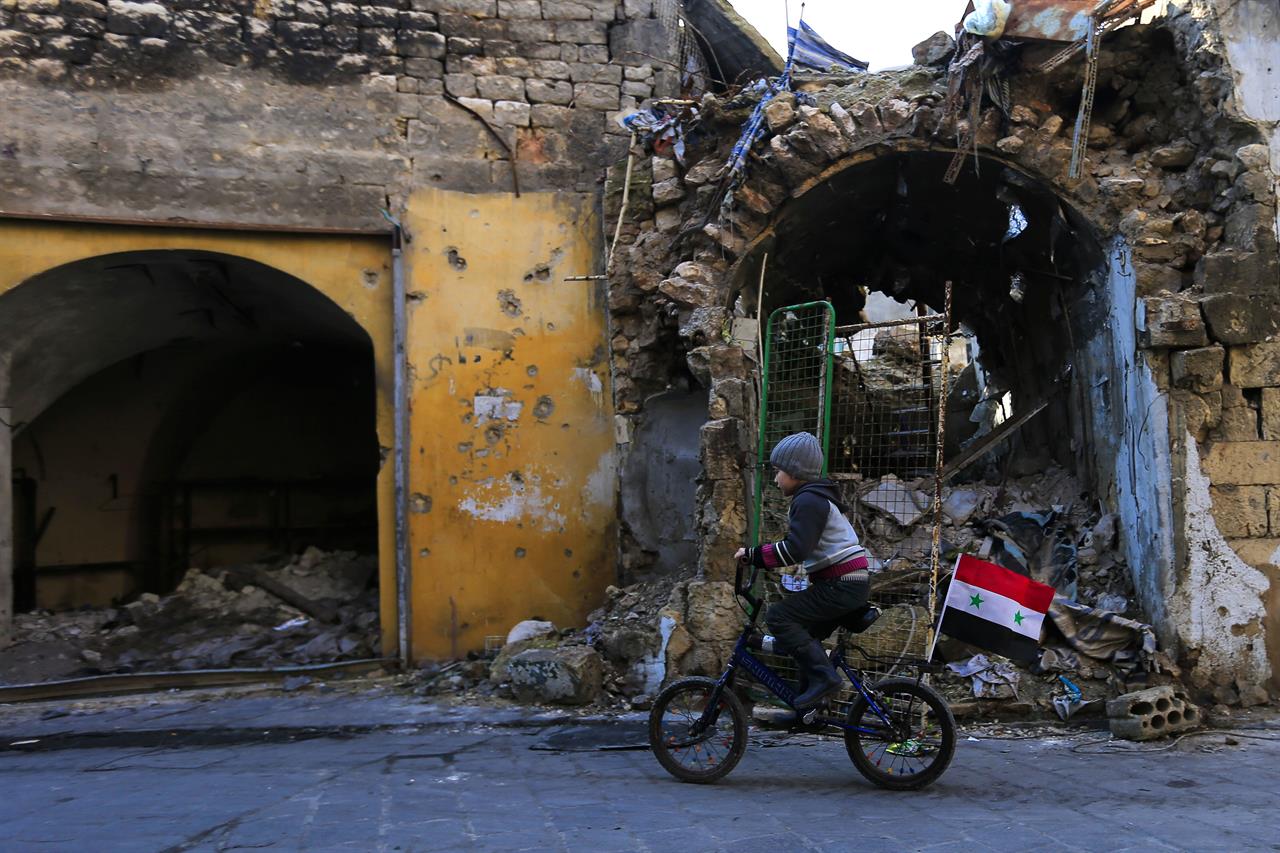Anyone who has ever been to Syria has shared memories of ubiquitous olive groves and orange gardens, diligently cultivated by local farmers. Plowed fields and sun-lit greenhouses were an inseparable part of a typical Syrian rural landscape. However, the picture has changed, and not for the better. Spirit of distress came instead of prosperity, and fruitful gardens were devastated by the flames of war.
The city of Aleppo, industrial and financial center of Syria, suffered the most. After having bled the city and its people dry, the militants resorted to destruction. As they ran, the main power plant was set on fire together with hundreds of thousand liters of fuel that spilled out and burned everything in its pass.
“The main power plant was set on fire”
Now, only the patches of scorched earth and rusted carcasses of fuel tanks remain there. Everything else was looted by the militants: copper cables, electric parts, gears, even furniture.
The plant is still out of service. Its core hardware, that had been supplying not only the largest urban and industrial area of Syria but also the adjacent countries power grids, has taken substantial damage. The repair crews are working to bring back to life a single power block by scratching the other four for spare parts to give the city a minimum electricity supply.
The damage is enormous, but peculiarly selective: while the Japan-made turbines were left untouched, the generators made in the U.S. were destroyed to the core. It is now impossible to rebuild them due to the sanctions imposed on Syria by the West, explains the plant’s Deputy General Director Ghiyas al-Ahmar. This is why the citizens of Aleppo still suffer from lack of electricity and cannot warm their houses during cold weather. Power cuts also impede the recovery of the industry. Is this what the West wanted?
“The repair crews are working to bring back to life a single power block”
This concern is shared by Omar Azzad, head of eastern Aleppo administration, who leads the reconstruction of the most damaged part of the city. The militants have been destroying buildings to create barricades from the rubble of concrete, reinforcement bars and stones. Now that the heavy equipment is scarce because of the war and buying new machines or spare parts is unavailable to the Western sanctions, the rubble can only be cleared by hand. The work begins early in the morning and lasts till night. Everyday thousands of people come to clear the streets, repair the roads and buildings, more and more displaced citizens are coming back to rebuild their homes. The traders return to the streets and the industrial companies are getting ready to relaunch production. Every day more jobs are created.
However, the traces of war still loom over the city. When people return to their homes they often find them transformed into fire positions hiding unexploded munitions or booby-trapped by the militants. In the most difficult cases the citizens of Aleppo turn for help to the mine clearance specialists from the Russian military police.
The most common are pressure mines casually disguised to look like a fire extinguisher or a gas cylinder. In a more elaborated design, recently discovered by the specialists, several interconnected improvised explosive devices were hidden in multiple adjacent buildings. The wires that were plugged into them lead to a tunnel and eventually to a militant’s hideout.
To help the people cope with everyday struggles humanitarian help is regularly distributed in eastern Aleppo. The population of the areas previously held by the opposition is in desperate need of help, as it has been strikingly demonstrated by the story of Mutia al-Fares, a mother of eight and a nurse, whose husband perished during the war. Mutia’s family lives on 19 thousand liras (around $35) per month. She confesses that without the humanitarian help they would inevitably starve to death.
/298
source : ABNA
Monday
27 March 2017
10:15:42 PM
820368

(AhlulBayt News Agency) - Anyone who has ever been to Syria has shared memories of ubiquitous olive groves and orange gardens, diligently cultivated by local farmers, However, the picture has changed, and not for the better.
